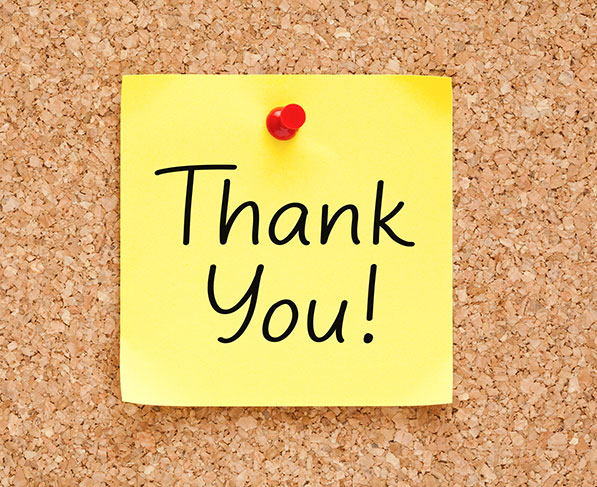Transforming ourselves and our workplace through gratitude

November is known for many things: there’s the end of Daylight Savings Time (we gain that extra hour of sleep), Election Day, Veteran’s Day, Fibonacci Day on November 23 (11-23, get it?), and of course, Thanksgiving Day. Many of us celebrate Thanksgiving with our family and friends, eating food, watching football, gearing up for Black Friday, and other traditions. It’s a time to pause and give thanks for the things we have.
The power of gratitude is not limited to the month of November. It’s a practice that adds value to your life and community all year long.
For us as individuals, gratitude can improve our health and well-being. Participating in just two weeks of a gratitude intervention revealed a positive link to well-being, optimism, sleep quality, and decreases in diastolic blood pressure. Even during the most intense and stressful times of the onset of COVID-19, people who felt more gratitude reported feeling healthier, having higher positive affect, and lower levels of perceived stress related to COVID-19 not just on that day but the day after as well.
Gratitude can also positively transform our workplace at Wake Forest University. Gratitude at work according to research in the Journal of Positive Psychology can be defined by our gratitude for a supportive work environment (such as salary, benefits, work/life balance, autonomy, and support from our coworkers and leaders) and gratitude for meaningful work (for instance, interactions with those we help like our students, the positive impact we have, our accomplishments, and ability to grow and learn). Both types of gratitude were found to have a positive association with how satisfied we are at work, our work performance, and our organizational commitment. One study even found that gratitude at work “can counter workplace toxicity and enhance a collaborative work environment.”
Here are some ways you can practice gratitude this month, or any month of the year
- Focus on gratitude with CCL’s seven-day gratitude challenge
- Try starting a gratitude journal like the one from the Greater Good Science Center.
- Tell a fellow Deac why you are thankful for them. Give them one specific behavior or example that lets them know why you are thankful for them. You can send a thank-you note or tell them in person.
- Listen to an audio-only Workday Learning Course on an Introduction to Gratitude Meditation
- Take a Workday Learning Course featuring Arianna Huffington on Facing Challenges with Gratitude and Forgiveness
We want to thank you for reading this blog and for allowing the Professional Development Center to be part of your ongoing professional development so far this year, and into the future.
Continue your professional development with the PDC:
- Visit us online at pdc.wfu.edu
- Register for our classes through Workday Learning
- Follow the PDC on Instagram @wfutalent
Or, contact our professional staff:
William (Bill) Gentry (gentrywa@wfu.edu) – Director of the PDC and Learning & Development
Missy Campbell (campbem@wfu.edu) – Manager, Learning & Development
Melissa Clodfelter (clodfem@wfu.edu) – Assistant Vice President, Faculty & Staff Experience
Categories: Personal & Career Development
